One of the first things you notice when you visit Japan is how nice and polite everyone seems to be. Shop staff bow to you, people greet you in the hotel lobby, even the guy at the combini sprints across the store to open up the second register when there’s more than one person waiting to be served.
But spend any prolonged amount of time here and you’ll realise that there are plenty of rude people here too (just like in the rest of the world…). And there are even a few niceties we in the west generally perform as a matter of habit that just aren’t part of the Japanese way of doing things.
So just how are Westerners unintentionally schooling the Japanese in manners?
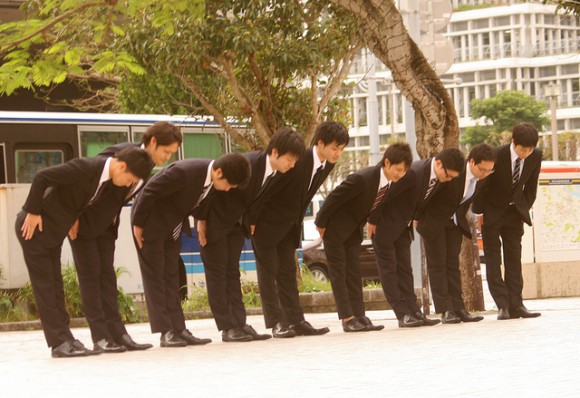


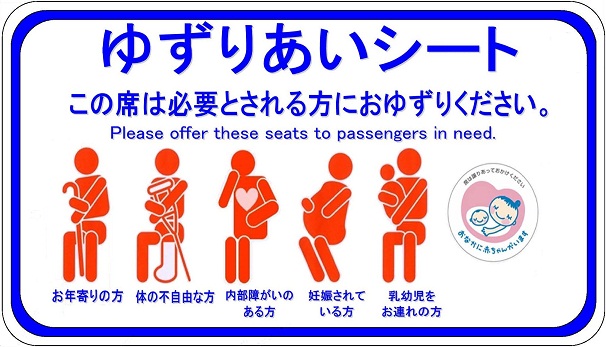
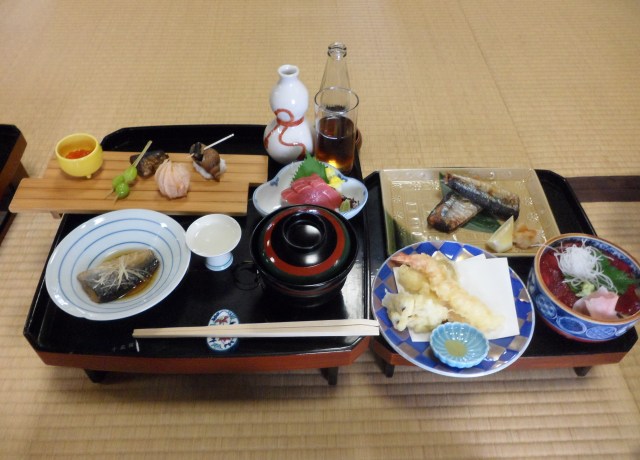

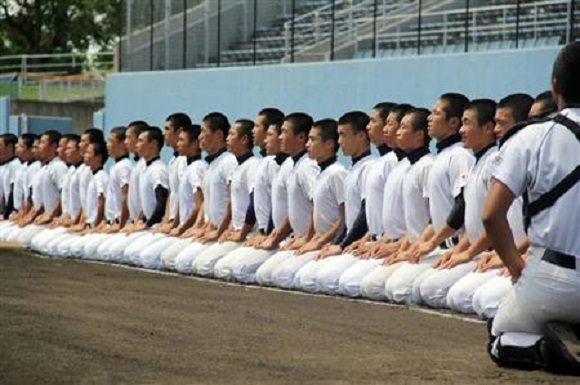

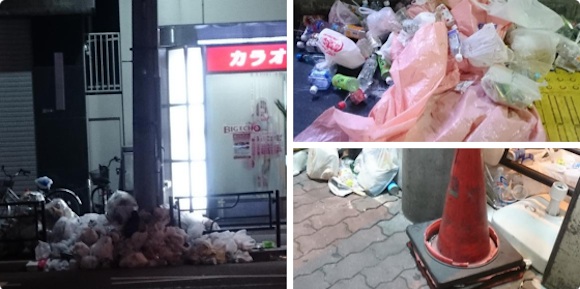
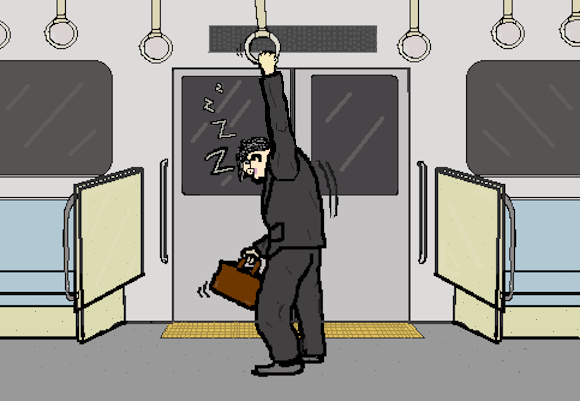

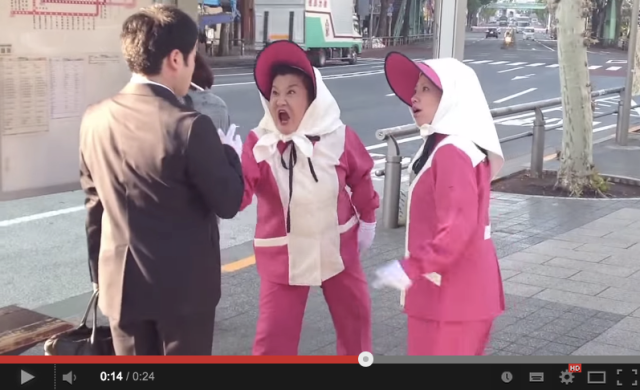


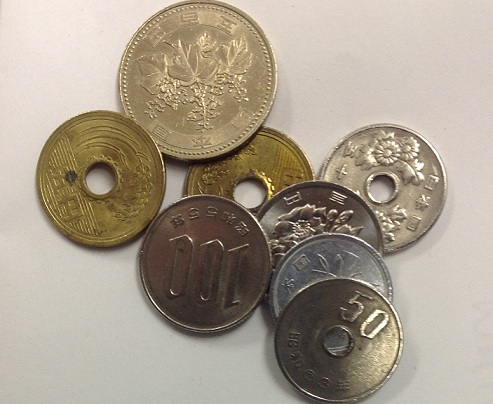
 Starbucks Japan unveils new sakura cherry blossom collection for hanami season 2026
Starbucks Japan unveils new sakura cherry blossom collection for hanami season 2026 The massive Pokémon card public art display going on in Japan right now is a thing of beauty【Pics】
The massive Pokémon card public art display going on in Japan right now is a thing of beauty【Pics】 Japan Extreme Budget Travel! A trip from Tokyo to Izumo for just 30,000 yen [Part 2]
Japan Extreme Budget Travel! A trip from Tokyo to Izumo for just 30,000 yen [Part 2] Ramen for 99 yen?!? Best value-for-money noodles found at unlikely chain in Japan
Ramen for 99 yen?!? Best value-for-money noodles found at unlikely chain in Japan Sakura Festival in Chiyoda mixes illuminations, boats, music, and Rilakkuma in the heart of Tokyo
Sakura Festival in Chiyoda mixes illuminations, boats, music, and Rilakkuma in the heart of Tokyo New Studio Ghibli die-cast anime cars on their way, even if neither one is really a car【Pics】
New Studio Ghibli die-cast anime cars on their way, even if neither one is really a car【Pics】 Say hello to Japan’s new generation of adults, fresh from Kitakyushu’s 2023 seijinshiki ceremony
Say hello to Japan’s new generation of adults, fresh from Kitakyushu’s 2023 seijinshiki ceremony 7-Eleven Japan’s sakura sweets season is underway right now!
7-Eleven Japan’s sakura sweets season is underway right now! Japanese adult film actress covers herself in plastic, gives in to her urges on the Shinkansen
Japanese adult film actress covers herself in plastic, gives in to her urges on the Shinkansen Celebrate “Educational Candy Day” with a traditional Japanese game made of candy
Celebrate “Educational Candy Day” with a traditional Japanese game made of candy Starbucks Japan releases first-ever Hinamatsuri Girls’ Day Frappuccino
Starbucks Japan releases first-ever Hinamatsuri Girls’ Day Frappuccino Japanese restaurant chain serves Dragon Ball donuts and Senzu Beans this spring
Japanese restaurant chain serves Dragon Ball donuts and Senzu Beans this spring Japan Extreme Budget Travel! A trip from Tokyo to Izumo for just 30,000 yen [Part 1]
Japan Extreme Budget Travel! A trip from Tokyo to Izumo for just 30,000 yen [Part 1] Highest Starbucks in Japan set to open this spring in the Tokyo sky
Highest Starbucks in Japan set to open this spring in the Tokyo sky Japan’s craziest burger chain takes menchi katsu to new extreme levels
Japan’s craziest burger chain takes menchi katsu to new extreme levels Japan has only one airport named after a samurai, so let’s check out Kochi Ryoma【Photos】
Japan has only one airport named after a samurai, so let’s check out Kochi Ryoma【Photos】 Japanese drugstore sells onigiri at pre-stupid era prices, but how do they compare to 7-Eleven?
Japanese drugstore sells onigiri at pre-stupid era prices, but how do they compare to 7-Eleven? Viral Japanese cheesecake from Osaka has a lesser known rival called Aunt Wanda
Viral Japanese cheesecake from Osaka has a lesser known rival called Aunt Wanda Which convenience store onigiri rice balls are the most popular? Survey reveals surprising results
Which convenience store onigiri rice balls are the most popular? Survey reveals surprising results Japan’s newest Shinkansen has no seats…or passengers [Video]
Japan’s newest Shinkansen has no seats…or passengers [Video] Starbucks Japan releases new sakura goods and drinkware for cherry blossom season 2026
Starbucks Japan releases new sakura goods and drinkware for cherry blossom season 2026 Foreigners accounting for over 80 percent of off-course skiers needing rescue in Japan’s Hokkaido
Foreigners accounting for over 80 percent of off-course skiers needing rescue in Japan’s Hokkaido Super-salty pizza sends six kids to the hospital in Japan, linguistics blamed
Super-salty pizza sends six kids to the hospital in Japan, linguistics blamed Starbucks Japan unveils new sakura Frappuccino for cherry blossom season 2026
Starbucks Japan unveils new sakura Frappuccino for cherry blossom season 2026 Foreign tourists in Japan will get free Shinkansen tickets to promote regional tourism
Foreign tourists in Japan will get free Shinkansen tickets to promote regional tourism The 10 most annoying things foreign tourists do on Japanese trains, according to locals
The 10 most annoying things foreign tourists do on Japanese trains, according to locals Take a trip to Japan’s Dododo Land, the most irritating place on Earth
Take a trip to Japan’s Dododo Land, the most irritating place on Earth Naruto and Converse team up for new line of shinobi sneakers[Photos]
Naruto and Converse team up for new line of shinobi sneakers[Photos] Is China’s don’t-go-to-Japan warning affecting the lines at a popular Tokyo gyukatsu restaurant?
Is China’s don’t-go-to-Japan warning affecting the lines at a popular Tokyo gyukatsu restaurant? Survey asks foreign tourists what bothered them in Japan, more than half gave same answer
Survey asks foreign tourists what bothered them in Japan, more than half gave same answer Japan’s human washing machines will go on sale to general public, demos to be held in Tokyo
Japan’s human washing machines will go on sale to general public, demos to be held in Tokyo Starbucks Japan releases new drinkware and goods for Valentine’s Day
Starbucks Japan releases new drinkware and goods for Valentine’s Day We deeply regret going into this tunnel on our walk in the mountains of Japan
We deeply regret going into this tunnel on our walk in the mountains of Japan Studio Ghibli releases Kodama forest spirits from Princess Mononoke to light up your home
Studio Ghibli releases Kodama forest spirits from Princess Mononoke to light up your home Major Japanese hotel chain says reservations via overseas booking sites may not be valid
Major Japanese hotel chain says reservations via overseas booking sites may not be valid Put sesame oil in your coffee? Japanese maker says it’s the best way to start your day【Taste test】
Put sesame oil in your coffee? Japanese maker says it’s the best way to start your day【Taste test】 No more using real katana for tourism activities, Japan’s National Police Agency says
No more using real katana for tourism activities, Japan’s National Police Agency says New Studio Ghibli die-cast anime cars on their way, even if neither one is really a car【Pics】
New Studio Ghibli die-cast anime cars on their way, even if neither one is really a car【Pics】 Say hello to Japan’s new generation of adults, fresh from Kitakyushu’s 2023 seijinshiki ceremony
Say hello to Japan’s new generation of adults, fresh from Kitakyushu’s 2023 seijinshiki ceremony 7-Eleven Japan’s sakura sweets season is underway right now!
7-Eleven Japan’s sakura sweets season is underway right now! Japanese adult film actress covers herself in plastic, gives in to her urges on the Shinkansen
Japanese adult film actress covers herself in plastic, gives in to her urges on the Shinkansen Celebrate “Educational Candy Day” with a traditional Japanese game made of candy
Celebrate “Educational Candy Day” with a traditional Japanese game made of candy We try “Melon Bread Style Toast Spread”, designed to turn sliced bread into melon bread
We try “Melon Bread Style Toast Spread”, designed to turn sliced bread into melon bread Yoshinoya’s new Super-Special-Large Bowl: A gigantic three-animal 1,700-calorie fest【Taste test】
Yoshinoya’s new Super-Special-Large Bowl: A gigantic three-animal 1,700-calorie fest【Taste test】 Death Spray from Japan causes buzz online for powerful ability to cut ties with bad energy
Death Spray from Japan causes buzz online for powerful ability to cut ties with bad energy We visit Osaka’s newly dubbed Koreatown for the first time and set our sights on all of the food
We visit Osaka’s newly dubbed Koreatown for the first time and set our sights on all of the food Top cosplayer Enako’s Christmas cosplay is here, but is “Santacos” really an accurate term?【Pics】
Top cosplayer Enako’s Christmas cosplay is here, but is “Santacos” really an accurate term?【Pics】 Five words that sound completely different across Japanese regional dialects
Five words that sound completely different across Japanese regional dialects Japan Extreme Budget Travel! A trip from Tokyo to Izumo for just 30,000 yen [Part 1]
Japan Extreme Budget Travel! A trip from Tokyo to Izumo for just 30,000 yen [Part 1] Japan’s craziest burger chain takes menchi katsu to new extreme levels
Japan’s craziest burger chain takes menchi katsu to new extreme levels Kyoto raises hotel accommodation tax to fight overtourism, travelers could pay up to 10 times more
Kyoto raises hotel accommodation tax to fight overtourism, travelers could pay up to 10 times more